NI election results 2022: Sinn Féin wins most seats in historic election
- Published
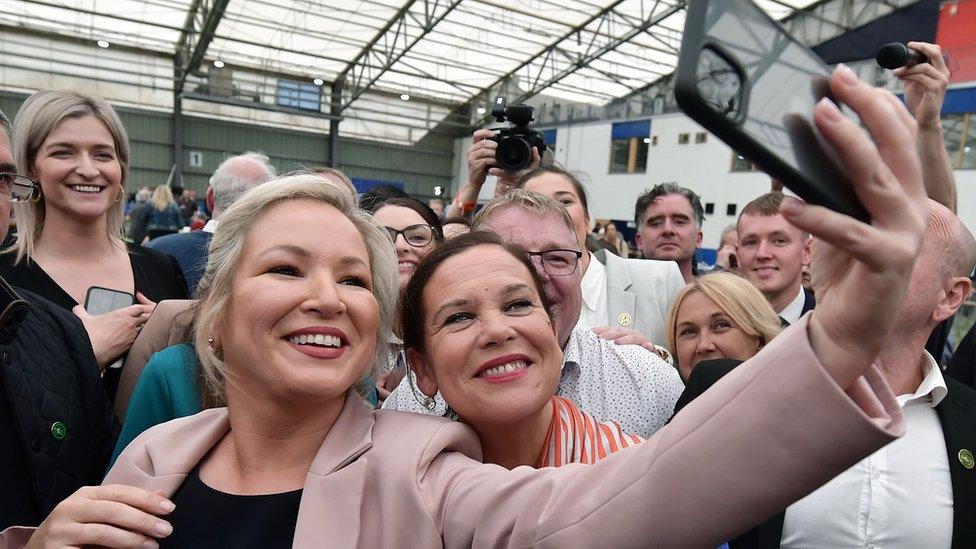
Sinn Féin, led by Michelle O'Neill and Mary Lou McDonald, want Northern Ireland to leave the UK and reunite with the Republic of Ireland
Sinn Féin will be the largest party in the Northern Ireland Assembly for the first time, pushing the Democratic Unionist Party (DUP) into second place.
Sinn Féin has 27 seats, compared to the DUP's 25.
The result means Michelle O'Neill will be entitled to become first minister - unprecedented for a nationalist.
Earlier, Ms O'Neill said it had been an election of "real change" and a "defining moment for our politics and for our people".
"Today ushers in a new era which I believe presents us all with an opportunity to reimagine relationships in this society on the basis of fairness, on the basis of equality and on the basis of social justice," she continued.
Sinn Féin's Michelle O'Neill has described her party's performance as a "defining moment"
"My commitment is to work through partnership, not division," Ms O'Neill said after she was elected in Mid Ulster.
"We will work with those who serve all other political perspectives, we will show respect and we expect to be shown respect."
A unionist party has had the most seats at Stormont since Northern Ireland was formed in 1921.
The cross-community Alliance Party has returned 17 MLAs, more than doubling its previous number in 2017.
The Ulster Unionist Party (UUP) lost one MLA to return with nine, while the SDLP's seats fell from 12 to eight.
Counting in the Foyle constituency continued into a third day, with the DUP's Gary Middleton the last assembly member elected in the early hours of Sunday.
Thirty-two of the MLAs elected are women, compared with 27 who were returned in the last election.
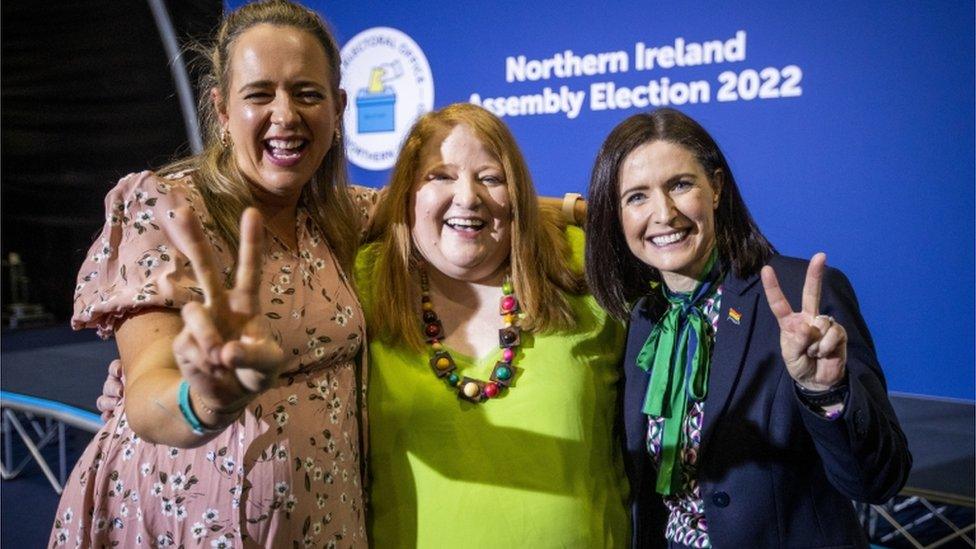
The Alliance Party gained a seat in Belfast South, with Kate Nicholl (left) and Paula Bradshaw (right) elected
Northern Ireland Secretary Brandon Lewis said he would meet with the party leaders over the coming days with the aim of restoring the Stormont institutions "at the earliest possible moment".
"I encourage the parties to form an executive as soon as possible. The people of Northern Ireland deserve a stable and accountable local government that delivers on the issues that matter most to them," he said.
In February, the executive collapsed when DUP assembly member Paul Givan resigned as first minister.
As the first and deputy first minister roles are part of a joint office, the move also removed Michelle O'Neill from her position.
Taoiseach (Irish prime minister) Micheál Martin said a new power-sharing executive was "vital for progress and prosperity for all in Northern Ireland".
"It is now incumbent on all political parties and elected representatives to deliver on their mandate, through the nomination of a first and deputy first minister and the formation of a new executive to serve the interests of all of the people of Northern Ireland."
The US State Department called for the parties "to take the necessary steps to re-establish a power-sharing executive".
"Critical and immediate challenges concerning the economy, health, and education are best addressed through the collective efforts of a devolved government chosen by, and accountable to, its people," said Ned Price.
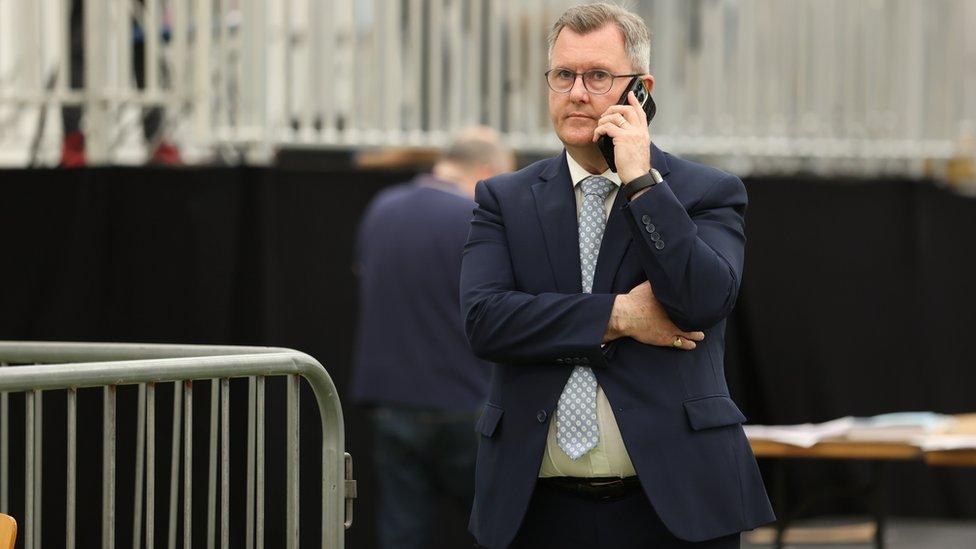
DUP leader Sir Jeffrey Donaldson said he has not decided whether the party will nominate a deputy first minister
Although Sinn Féin can now nominate a first minister, they cannot take up the office unless the DUP, the biggest party from the unionist bloc, agrees to nominate a deputy first minister.
Its leader Sir Jeffrey Donaldson has not yet made a decision on whether the party will do that.
On Saturday, the DUP leader said his party would respect the result of the election, however, there needed to be changes made to the Northern Ireland Protocol.
The protocol is an element of the UK's Brexit agreement with the European Union which keeps Northern Ireland aligned with the EU single market for goods.
Some unionists have said the protocol created a trade border between Northern Ireland and Great Britain.
Border poll
The ultimate goal of Sinn Féin is for Northern Ireland to leave the UK and become one country with the Republic of Ireland.
But a victory for Sinn Féin in this election does not mean a vote on Irish reunification - also known as a border poll - would be imminent.
The Northern Ireland Act 1998, external - which followed the signing of the Good Friday Agreement - stated that Northern Ireland remained part of the United Kingdom and "shall not cease to be so without the consent of a majority of the people of Northern Ireland voting in a poll".
It also stated that the Northern Ireland Secretary would agree to hold a poll if it appeared likely that a majority of people wanted a united Ireland.
Successive opinion polls suggest that is not yet the case, with the most recent, published in April, putting support at about a third.
On Saturday, when asked about the prospect of a border poll, Sinn Féin President Mary-Lou McDonald said unionists should not be "scared".
"The future is bright for all of us," she added.

Will a border poll be on the agenda?

While Sinn Féin was reluctant to promote its border poll ambitions during the election campaign, expect it to be back on the agenda now.
But the party said it will be a decade-long plan at least which will only come after an island-wide conversation.
The decision to hold a border poll is for the Northern Ireland secretary of state, when he or she feels there is more of an appetite for Irish unity.
But you may now find talk of a border poll will slowly fade if a power-sharing executive returns and no votes are on the line.
Read more from Enda on Sinn Féin's journey from political pariahs to Stormont power brokers here.

Alliance Party leader Naomi Long said she was "hugely proud" of what the party had achieved.
"I'm also hugely blessed to be leading a party of the calibre of Alliance with people who are so dedicated, so committed and so selfless in their service," she said.
UUP leader Doug Beattie, speaking after he was elected in Upper Bann, said he had no plans to change course after his party failed to grow its support.
"I will continue to promote positive, confident, optimistic unionism," he explained.
After Sinn Féin's result was confirmed, Scotland's First Minister Nicola Sturgeon congratulated the party on a "historic vote".
Allow X content?
This article contains content provided by X. We ask for your permission before anything is loaded, as they may be using cookies and other technologies. You may want to read X’s cookie policy, external and privacy policy, external before accepting. To view this content choose ‘accept and continue’.
She tweeted that she hoped to see Northern Ireland's government "functioning again soon".


Despite seeing a surge in vote share, the Traditional Unionist Voice (TUV) returned one MLA, its leader Jim Allister.
Gerry Carroll, of People Before Profit, was elected in Belfast West, while independents were elected in East Londonderry and North Down.
SDLP Deputy Leader Nichola Mallon, the party's representative on the executive as infrastructure minister, lost her seat in North Belfast.
Ms Mallon's party leader, Colum Eastwood, said there was nothing "fair" about her result and she would be a "huge loss for us, but a bigger loss for the people of north Belfast".
There were other high profile casualties, including Roy Beggs of the UUP and former Education Minister Peter Weir, of the DUP, who were members of the first assembly in 1998.
The DUP's Mervyn Storey, another former minister, failed to be elected along with the SDLP policing board member Dolores Kelly.
The Green Party lost its two MLAs, including leader Clare Bailey.

POSTCODE SEARCH: What are the results in my area?
NOTIFICATIONS: Sign up for Northern Ireland election alerts
THE ASSEMBLY: How power-sharing works in Northern Ireland

- Published7 May 2022
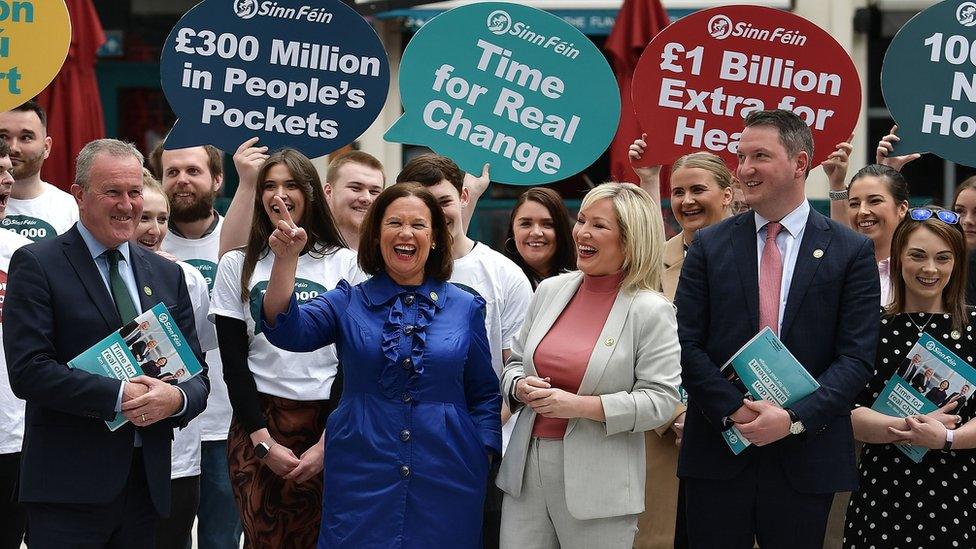
- Published7 May 2022
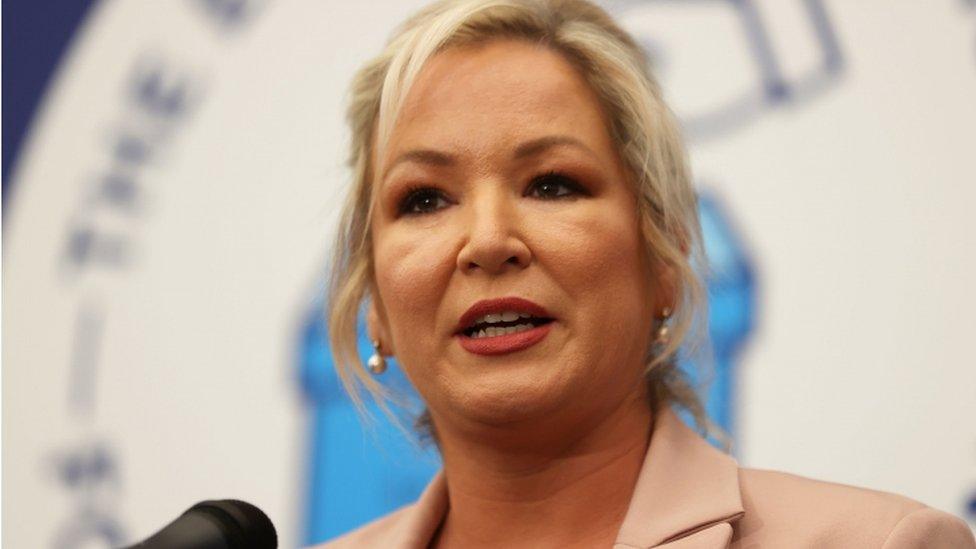
- Published12 May 2022
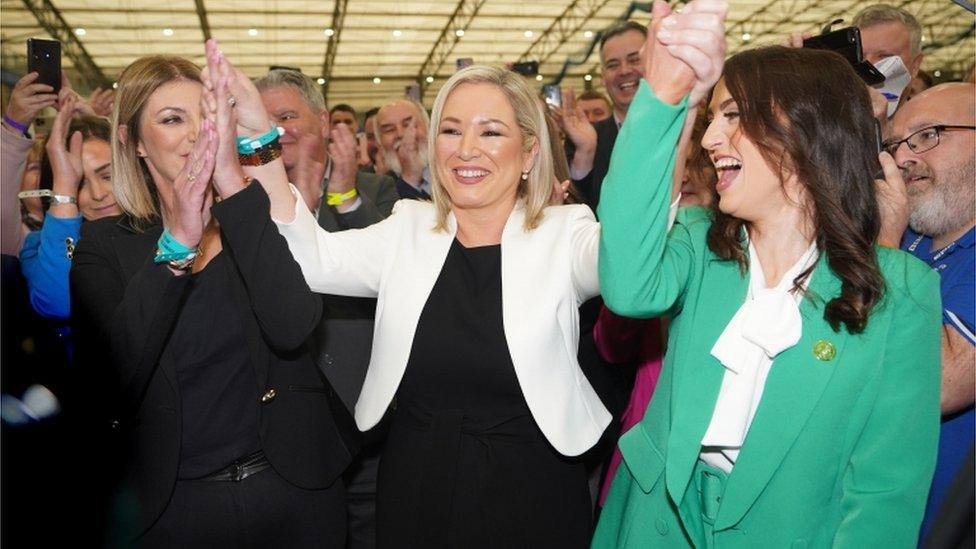
- Published4 May 2022

- Published12 April 2022

- Published3 February 2022
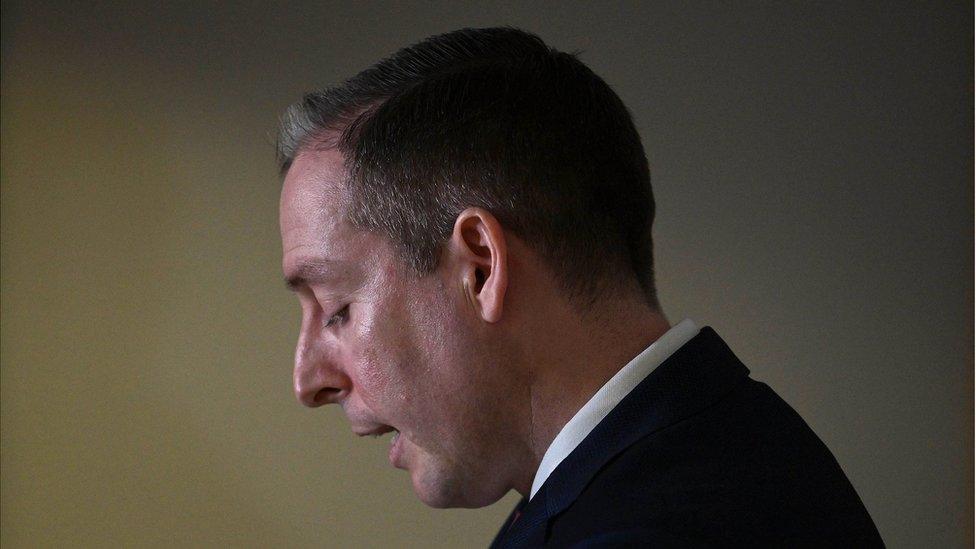
- Published7 May 2022